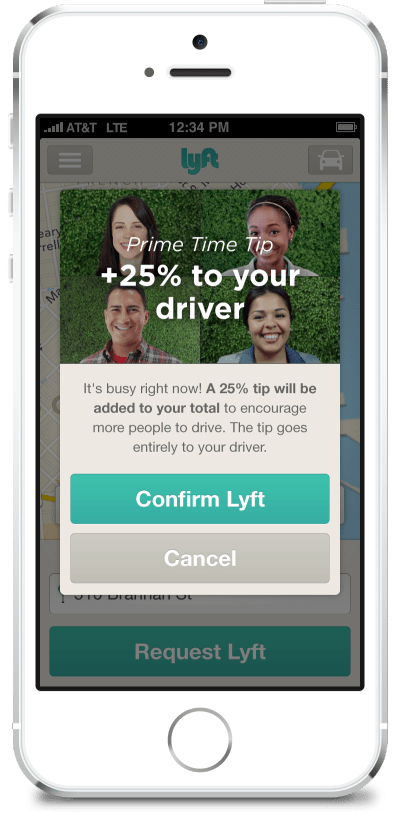Update: I appreciate everyone’s feedback on the title and first line of this post and I’ve updated it to more accurately reflect my views within. It was admittedly link-baity, but my intention was never to trash Uber (as I state multiple times). The rest of this article remains unchanged.
Uber seems like they don’t care about this week’s tragedy. But of course they do. To suggest that the Uber corporation is a bunch of monsters is silly. I’m sure the people within Uber are as horrified as the rest of us that this happened.
That said, you wouldn’t know it to look at their official response to the New Year’s Eve tragedy:
“UPDATE: We thank law enforcement for the quick release of information. We can confirm that the driver in question was a partner of Uber and that we have deactivated his Uber account. The driver was not providing services on the Uber system during the time of the accident. We again extend our deepest condolences to the family and victims of this tragic accident.”
Is Uber to blame for this death? Seems unlikely. Is it Uber’s responsibility to do something here? No. But this isn’t about responsibility. This is about perception and relationships with their community and the larger communities they operate in.
Don’t get me wrong: I give Uber immense credit for making a massive business out of something that many investors laughed at. But Uber has shown over and over that they don’t get community. They seem to think of their customers as a cog in their business.
The biggest example of this has been their price surges, which have been discussed ad nauseam. Are these surge prices based on the economics of supply and demand? Yes. Is Uber trying to gouge customers? Probably not. Is most of the money going to Uber? No, it’s going to the drivers. But that logic doesn’t matter, because Uber has done a terrible job messaging when and to a lesser extent why they initiate surge pricing. A recent article said:
“Although Uber posted a blog to warn people in advance, customers were still pissed to see rates increase. Uber hadn’t perfected its in-app messaging system yet, so some customers accepted rides for two or three times the normal rate without realizing.”
Hasn’t perfected?! Here’s a free tip from someone who builds community for a living: if a key part of your business that you’re unwilling to change is infuriating customers and creating massively bad PR, you need to focus all your energy on “perfecting” the messaging so nobody feels surprised.
 My former boss, Richard White of UserVoice (and a frequent Uber user) recently wrote a post on the lack of feedback mechanisms within Uber. Another item they’re still “perfecting”?
My former boss, Richard White of UserVoice (and a frequent Uber user) recently wrote a post on the lack of feedback mechanisms within Uber. Another item they’re still “perfecting”?
Meanwhile, a quick look at the Uber News blog shows a focus on expanding to new markets and doing marketing stunts. The only product-related update is about Uber for Blackberry. Oy.
Again, I don’t think Uber means ill will. I just think they are terrible at showing that they care and have no idea how to build a strong connection with their community. I’ve met community managers from their company and, while perfectly nice people and solid social media marketers, I see very little community building or community management in their job description. Uber thinks community is some tweeting out some cute stuff.
If Uber had a Chief Community Officer (see a slightly dated rant on this position here), they would tell Uber that they need to take the time, money, and – yes – potential legal liability to address these frustrations, issues, and circumstances head on. They need to be better at gathering and acting on feedback. For things like surge pricing, there will need to be actual product changes. For tragedies like this week’s, there needs to be a more human, emotional response.
 Want some great examples of this? Look no further than Lyft (arguably an Uber competitor) who focus intensely on community. Lyft’s blog has plenty of marketing content…but it also has customer-focused videos, fun games for their community, new features based on customer feedback, transportation safety info, and more. They, too, are introducing surge pricing…but they’re doing so in a very transparent, slow way. And as you can see, their messaging is very clear about how much you’re being charged, why, and whom the money goes to. They sure “perfected” that fast.
Want some great examples of this? Look no further than Lyft (arguably an Uber competitor) who focus intensely on community. Lyft’s blog has plenty of marketing content…but it also has customer-focused videos, fun games for their community, new features based on customer feedback, transportation safety info, and more. They, too, are introducing surge pricing…but they’re doing so in a very transparent, slow way. And as you can see, their messaging is very clear about how much you’re being charged, why, and whom the money goes to. They sure “perfected” that fast.
Or howabout Airbnb, who dealt with Airbnb renters destroying hosts’s homes? While they had some missteps early on, they realized it wasn’t worth destroying their community connection in order to save some money and make some lawyers happy. They doubled down on insurance for their members and 24/7 customer service. (There’s some great insight on that decision in this article.) And it worked out – Airbnb is long past these issues and still has an immensely strong community.
It might sound like I hate Uber. I don’t. But I think Uber is a perfect example of a modern company that is suffering because they never built community into their DNA. I think they’re decent people with a cool product and a good business model who are hurting themselves.
Will Uber fall apart because of this stuff? Probably not. But I suspect we’ll see community-focused companies like Lyft leech a lot more Uber customers because of it.

 You have X amount of work each day and your Y employees are able to complete it within 24 hours. Success, a sustainable business! If it turns out, however, that in order to accomplish this baseline work people are consistently working very late hours, you have a false positive.
You have X amount of work each day and your Y employees are able to complete it within 24 hours. Success, a sustainable business! If it turns out, however, that in order to accomplish this baseline work people are consistently working very late hours, you have a false positive.

